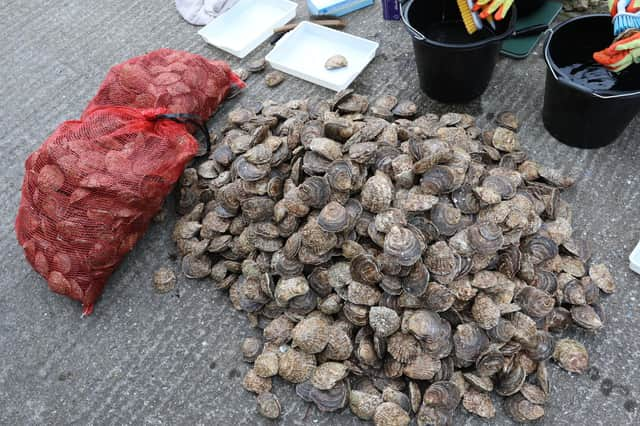Oyster plan aims to make Sunderland's water cleaner


The marina – along with the Port of Blyth in Northumberland – has been selected to be part of a scheme which aims to return native oysters to the UK and improve water quality.
A mature oyster can filter up to 200 litres of water a day, but native oysters are on the brink of extinction.
Advertisement
Hide AdAdvertisement
Hide AdSo far, 47 nurseries with 1,300 oysters have been installed underneath pontoons in Sunderland and Blyth.
Ecologists consider oysters to be "ocean superheroes" for their ability to filter sediment, nitrates and other pollutants from the seas and they are being introduced at six harbours nationally as part of the Wild Oyster Project.
Launched by the Zoological Society of London (ZSL), the Blue Marine Foundation (Blue) and trade association British Marine, it is hoped the oyster beds will become the "maternity ward" to the next generation of shellfish.
The project received a £1.2m grant from the People's Postcode Lottery.
Advertisement
Hide AdAdvertisement
Hide AdThe mature oysters should begin reproducing over the spring and summer, releasing millions of larvae into the ocean that will eventually settle on rocks and other hard structures and begin to grow.
As well as Tyne and Wear, oysters will be placed in the River Conwy in Wales, and the Firth of Clyde in Scotland.
Celine Gamble, wild oysters project manager at ZSL, said: "The oysters will almost immediately begin their important work helping to create cleaner water and increase marine biodiversity in the UK."
The nurseries are also intended to act as an outdoor classroom for schools and communities, and will be stewarded by local project officers.
Advertisement
Hide AdAdvertisement
Hide AdJames Scott-Anderson, environment executive of British Marine, said: "It is essential that we allow nature the space to recover and grow once again.
"Using marinas to house oyster nurseries is an innovative use of the space we have available."
Blue's senior UK projects manager Morven Robertson said: "It is vital in the current climate emergency and biodiversity crisis that nature receives the help it needs to bounce back.